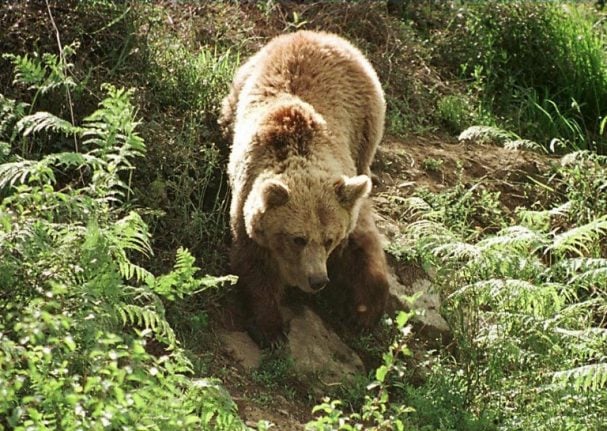Experts believe that the bear targeted one of the sheep sparking panic among the flock sending the animals hurtling over a cliff to their death 200 meters below, in a gorge outside the village of Lladorre in Catalonia.
An investigation concluded that a bear was to blame after analyzing hair found on one of the sheep, which belonged to a farmer in Couflens, southwestern France.
The incident has provoked an angry response from farmers in the region and renewed debate over the reintroduction of bears to the Pyrenees.
“Pastoralism, which is a guarantor of biodiversity and of a living and welcoming mountain region, is not compatible with the reintroduction of large predators,” said the French Confédération Paysanne (Farmers’ Federation) in a statement.
“The state, which is responsible for the reintroduction of the bears, should remove the ones that are causing problems and should not reintroduce any more bears,” it said.
Native Pyrenean brown bears were almost extinct in the 1990s due largely to hunting and the first attempt to re-introduce them was in 1996-97 when three bears – two females and a male named Pyros – were brought from Slovenia.
There are now believed to be 35 brown bears on both sides of the Pyrenees mountain range which straddles the Spanish-French border, the majority of them the offspring of Pyros who is now 26-years-old and showing signs of ageing.
Last year, a new male from Slovenia was been released in Spain's northern Pyrenees mountains as part of a programme to ensure the species' survival.
Named Goiat, the ten-year-old was ruled out as being responsible for the latest attack after authorities confirmed that his tracking device showed in was not in the area at the time.
READ MORE: Protected brown bear found shot in northern Spain



 Please whitelist us to continue reading.
Please whitelist us to continue reading.